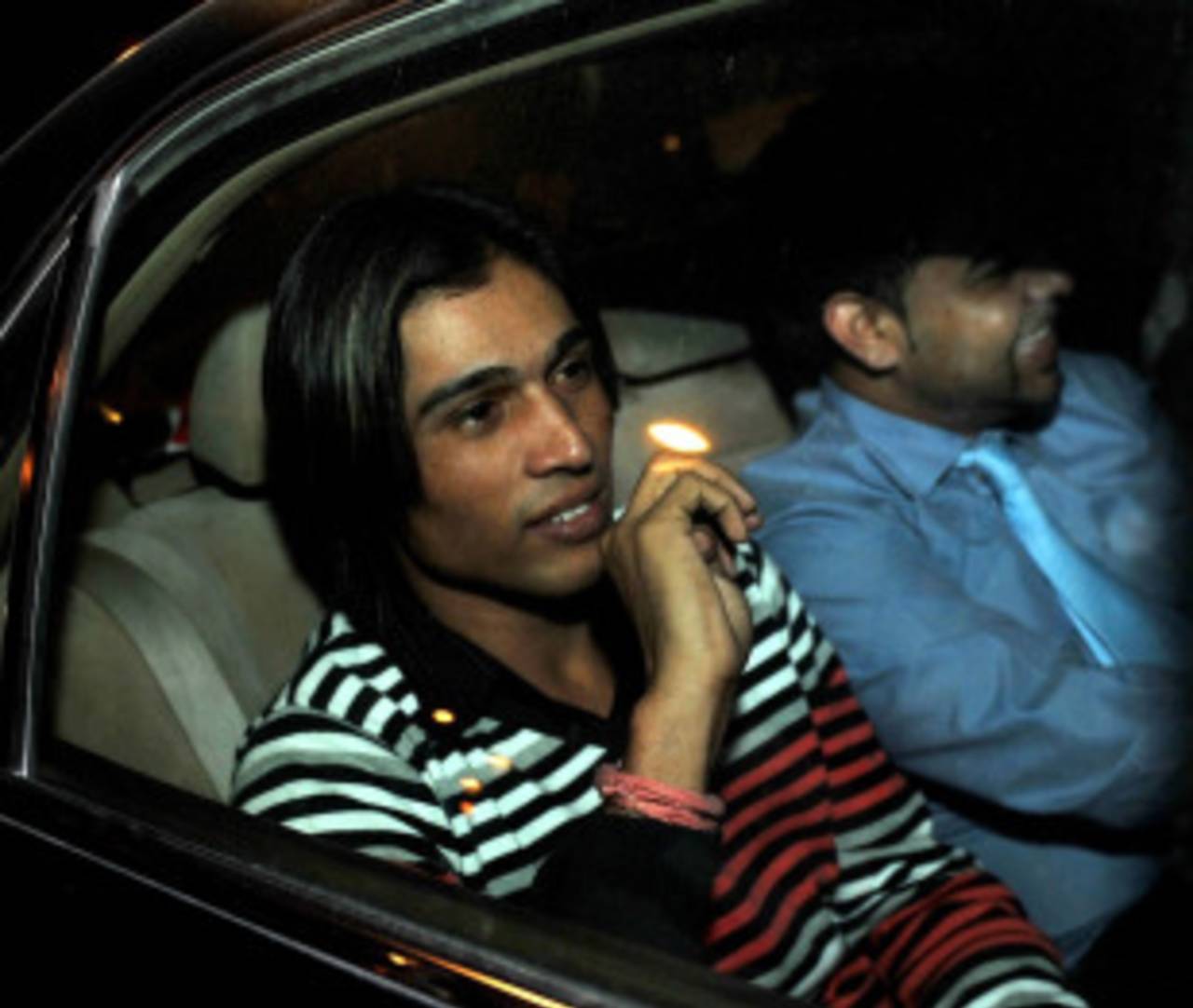ICC mull quicker reintegration of banned players
An amended ICC anti-corruption code, set to be implemented from June, is likely to facilitate a quicker return to international cricket for players serving long-term bans
ESPNcricinfo staff
21-Mar-2014

The proposed amendment could ease Mohammad Amir's reintegration into international cricket • AFP
An amended ICC anti-corruption code, set to be implemented from June, is likely to facilitate a quicker return to international cricket for players serving long-term bans. The idea behind the move is to help the player get ready to play competitive cricket as soon as the ban period is over rather than wait for the ban to end before he can start training.
"There are some amendments being considered to the anti-corruption code and one of those amendments deals with how we reintegrate banned players back into cricket," Dave Richardson, the ICC chief executive, told a selection of media during an informal gathering in Mirpur on Friday. "So if someone is banned for five years, can he come and play domestic cricket or club cricket a little bit earlier? So that when his five-year ban internationally expires, he can resume his career. So the revised code will deal with that, but it's not dealing specifically with an individual case. This will be a principle that will be applied to all people who may be banned, now or in the future."
This development will come as good news for the Pakistan trio of Mohammad Amir, Salman Butt and Mohammad Asif, who were found guilty of spot-fixing during the Lord's Test of Pakistan's 2010 tour of England by an ICC tribunal. The three players were slapped bans by the tribunal: Butt got 10 years, Asif seven and Amir received a five-year ban from playing all forms of cricket.
Amir, who was 18 at the time, had pleaded not guilty in front of the tribunal but later confessed his guilt during a separate criminal hearing in London's Crown Court. Although Amir's ban comes to an end on September 2, 2015, the PCB has been trying hard to convince the ICC to allow him to ease his way back into cricket, starting by allowing him to train at the PCB facilities.
That proposal was put in front of the five-member sub-committee appointed by the ICC at its annual conference in London in 2013. The committee was meant to review and recommend amendments to the ICC' anti-corruption code, which was applied by the tribunal while banning the trio.